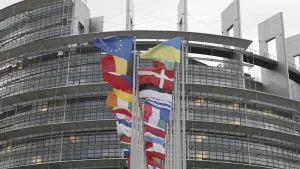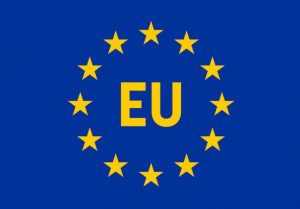Africa: Even in Shrinking Civic Spaces, African Women Resist and Thrive

Nairobi, Kenya — At a time of growing backlash against women’s rights, the civic space in which African women live, organise, and advocate is steadily shrinking. Across the continent, women’s rights defenders are facing heightened violence, online and offline harassment, restrictive laws, and deep funding cuts that undermine their ability to mobilise and protect hard-won gains. Political instability, anti-rights movements, and digital repression add to these pressures, reducing women’s voices and eroding their support systems.
As discrimination against women and girls persists and even deepens, feminist movements warn that the consequences of shrinking civic space are gendered and severe: reduced freedom of expression and assembly, weakened advocacy networks, and growing threats to bodily autonomy and gender equality. Against this backdrop, Women Deliver 2026 emerges as a pivotal moment, a global platform where African advocates can reclaim space, rebuild collective power, and confront the escalating restrictions that jeopardise women’s rights across the continent.
Moderating the session, Irene Ogeta, a programme officer at the Athena Network, set the tone with a grounding reminder of what shrinking civic space truly means for African feminists.
She said that the issue was not theoretical but deeply personal for those doing the work. “When we speak about shrinking civic space, we are not referring to distant points or abstract frameworks,” she said. “We are speaking about our safety, our voices, our digital footprint, our organising spaces, and the communities we love and serve.”
She described how young women leaders, queer activists, grassroots human rights defenders, and community mobilizers are navigating increasingly hostile environments across the continent. “These take the form of surveillance of our communities, censorship of our work, criminalization of our identities, online harassment and gendered disinformation, intimidation, doxxing, and even threats to our physical safety,” said Ogeta.
Yet, Ogeta said, the story does not end with repression. “These pressures shape how we move, how we speak, how we show up, and how we protect one another,” she said. “And yet, in the midst of all these challenges, our movement continues to rise with resilience, creativity, and courage. We continue to adapt, to resist, and to imagine new possibilities grounded in solidarity, feminist values, and collective care.”
In spite of this, she stressed the movement’s unwavering resilience. “Even in shrinking civic spaces, resistance is alive,” she said, adding that community remains the source of strength in the face of these challenges.
Even in shrinking civic spaces, resistance is alive
Her remarks opened the Feminist Fireside Chat, framing the lived realities shared by panellists as part of a broader struggle and a collective refusal to be silenced.
Lilian Mbuthi, a Nairobi-based feminist researcher, reflected on her journey as a young feminist entering the movement, recalling how early on she and her peers were repeatedly instructed to “tone down.” She said that even before today’s wave of anti-rights and anti-gender movements emerged, young women advocates faced internal resistance within organisations. “Time and time again,” she said, “the team we were working with… constantly had to tell us to tone down.”
She said this persistent pushback took a psychological toll. She spoke candidly about how such experiences can erode young women’s confidence and sense of belonging. “You start questioning your whys,” she said. “Why are you in this space? Why are you doing the work that you’re doing?”
She added that shrinking civic space extends beyond emotional pressure or organisational gatekeeping. Today, she said, women and girls face heightened risks due to the rise of technology-facilitated gender-based violence, censorship, and stigma. As she put it, “the sense of belonging was constantly challenged… I had to question if I really belonged in this space.”
Diana Kirigo, a regional advocate for feminist justice and sustainability, described how simply introducing herself as someone who works for a feminist organisation can be treated as radical or even taboo. “It’s like your view is a radical concept,” she said, noting that society often responds with suspicion or backlash: “Why are you doing that? What about boys?”
She said that these reactions reveal deep misunderstandings about gender justice work, not a bias against boys, but a refusal to acknowledge the structural inequalities faced by girls and women.
Yet the narrative persists.
“It’s like we are leaning more on girls rather than the boys,” Kirigo said, pointing out how advocates are routinely forced to defend the legitimacy of centering women and girls’ rights in contexts where they remain disproportionately vulnerable.
Ugandan feminist and youth advocate Apio Winfred said it is also important to highlight what she described as a “moral reckoning” in feminist advocacy work. She recalled working on campaigns for access to safe abortion and comprehensive sexuality education efforts that were met with intense resistance, particularly during the expansion of the Global Gag Rule. A Global Gag Rule is a U.S. government policy that prohibits foreign non-governmental organizations (NGOs) receiving U.S. global health assistance from providing abortion counseling or referrals, advocating for abortion law reform, or providing abortion services, even if they use their own non-U.S. funds for these activities.
She said that policies like the Protecting Life in Global Health Assistance rule severely restricted how organisations receiving U.S. funding could operate. “Organisations were limited from doing work around abortion and CSE,” she said. The restrictions extended not only to U.S. funds but also “money that’s being received from other donors,” even when the work aimed to address urgent issues like teenage pregnancy.
“The question becomes, as we are being limited in how we can use the funding… where do we ask ourselves, where money versus the community that you’re serving, who do you listen to?” She described grappling with whether organisations should accept funding that ultimately “culls the kind of work you’re doing and ends up disadvantaging the communities at the grassroots.”
Winfred said that the threats facing feminist movements are interconnected. The rise of anti-rights movements, anti-abortion policies, and repressive laws, such as Uganda’s Anti-Homosexuality Act, cannot be viewed in isolation.
“All these attacks are not isolated,” she said. “They are a continual, well-coordinated action to regress the kind of work we have done as feminists.”
Navigating backlash
Winfred said that resistance has become a tool for young feminists, something they reshape and use to carve out space in a hostile environment.
“A very important part of our feminist, human rights, and activist ethos is taking the resistance we face and using it like a knife to carve out space for ourselves,” she said. “When we’re constantly told we don’t belong, we have to take that and create our own spaces – creatively – so that the voices being consistently muzzled are brought to the front,” said Winfred.
She said that at their organization, Akina Mama wa Africa, they deliberately use creativity to counter backlash, especially in contexts shaped by laws like Uganda’s Anti-Homosexuality Act, which have pushed queer communities even further into marginalisation. Their work focuses on ensuring these communities can tell their own stories while the organisation amplifies them.
“We are finding creative ways to keep telling these stories while pushing for feminist growth, leadership, and consciousness-raising, ensuring African queer people can tell their own stories. We’re simply here to amplify and broadcast them,” she said.
Winfred also said that shrinking civic space is not limited to gender rights. It cuts across areas such as SRHR, climate justice, and children’s rights. For that reason, she said, a need for intersectional approaches that keep marginalised voices at the forefront.
Kirigo said that she would like to see more collaborations, especially with women and people who are aligned with similar goals. “I work with marginalised women and girls in a community in Nairobi, and we advocate through creative methods like games, art, and music. We bring them in and remind them that the fight continues. Just be consistent, and lean towards a community that is aligned with what you’re fighting for,” she said.
Mbuthi manages a cohort of 52 adolescent girls and young women across 47 counties in Kenya through the Athena Network’s World Concern Programme. “My immediate go-to strategy is always creating solutions based on the problems our cohort constantly faces, whether in Eastern, Southern, or Central Africa,” she said.
That lived experience has radically reshaped how she works.
“This journey has shaped me, particularly around challenges of belonging and security. We now map our programming with risk mapping and create consent-driven actions, solutions that place young women on a safe trajectory,” said Mbuthi.
She said the use of secure communication tools, noting that platforms like Signal allow activists to discuss sensitive issues safely, much more so than other messaging apps. “At the heart of the work that we do, we are constantly exploring ways to keep safety… at the heart of the grid that they not only belong, but they are also safe enough to keep showing up in the spaces that we co-create,” said Mbuthi.
Winfred highlighted how shrinking civic spaces create layered marginalization for women, young women, adolescent girls, and queer communities. She explained that women activists often face more pushback than men, including online sexual harassment, while queer individuals are marginalized based on their identities, not just their advocacy.
“Queer people are also ostracized based on their identities, not just their advocacy work,” she said. “Digital repression is real – social media platforms, like Twitter, have become unsafe for activists because free speech is often framed as hate speech, resulting in misogynistic attacks against women.” This has caused many activists to move to alternative platforms, though these often lack the tools to protect users adequately.
She pointed to the legal weapons already in government hands.
“In Uganda, for example, NGO regulations, the Computer Misuse Act, and other laws are repeatedly used to surveil and intimidate organizations, especially those supporting LGBTQ+ communities. Operating under these systems is extremely unsafe,” Winfred said.
“The way shrinking civic space is affecting women in Uganda is by limiting access to information and resources, which reduces the availability of sexual and reproductive health information,” said Kirigo. She shared the story of a woman from the organization Empower Her, who faces personal risks when sensitizing girls and women about contraceptives. She shared that when she educates girls and women about issues like contraceptives, she becomes a target.
Kirigo said that at the grassroots level, providing such information is often stigmatized, and activists can be viewed as enemies of the community.
“Some of the challenges faced in Uganda are not just part of the story, but part of changing the narrative itself,” added Mbuthi. “As activists, advocates, and revolutionists, we are constantly balancing visibility with exposure. Visibility brings recognition, but it also exposes us to security risks, threats, scrutiny, even imprisonment or death.”
Mbuthi highlighted issues such as hypervisibility, morality politics, and the securitization of digital platforms, noting that grassroots organizations are also constrained by donor requirements and permits.
“While we speak the language of needing funds, we must also leverage public sector partnerships and not rely solely on the ‘white savior’ aid ecosystem,” she said. “We are constantly finding ways to be visible while practicing consciousness and safety.”
Strategies for survival
Winfred said that healing is a critical form of resistance for activists.
At Akina Mama wa Africa, she said, joy and laughter are deliberately embraced as tools to counter frustration and anger imposed by anti-gender and anti-racism movements. Regular healing circles and spaces allow us to experience joy in how far we’ve come and find resilience in resistance itself.
“This isn’t the first time we’ve faced pushback or shrinking spaces, and it won’t be the last,” said Winfred. “We take courage from the fact that, as a movement and as activists, we have overcome similar challenges before.
Winfred also stressed the importance of building solidarity through intersectionality, cross-movement collaboration, and African cross-border alliances to learn from peers across the continent and develop sustainable strategies.
Kirigo stressed the importance of learning from past collaborations and organizations to strengthen ongoing advocacy.
“Creative advocacy, working with what people enjoy, sharing knowledge and passion, engaging communities, and documenting human rights to hold authorities accountable are all critical,” she said. “It’s about showing up every day.”
Design your programming from a safety perspective
Mbuthi called for the importance of evidence-based research and data in guiding programming, alongside meaningful engagement with community and donor partners.
“Design your programming from a safety perspective, and ensure key stakeholders have a voice. Empower communities so that even tomorrow, they can stand on their own. That is empowerment, not tokenism,” she said. “Safety by design, security by design, fronting and empowering partners by design, and collective care is resistance.”
“Joy, as young feminists and queer people, is resistance in and of itself. Always note the role of intersectionality, and remember that receiving experiences is expertise; the person next to you has the capacity to develop something magical tomorrow,” said Mbuthi.
By Melody Chironda



